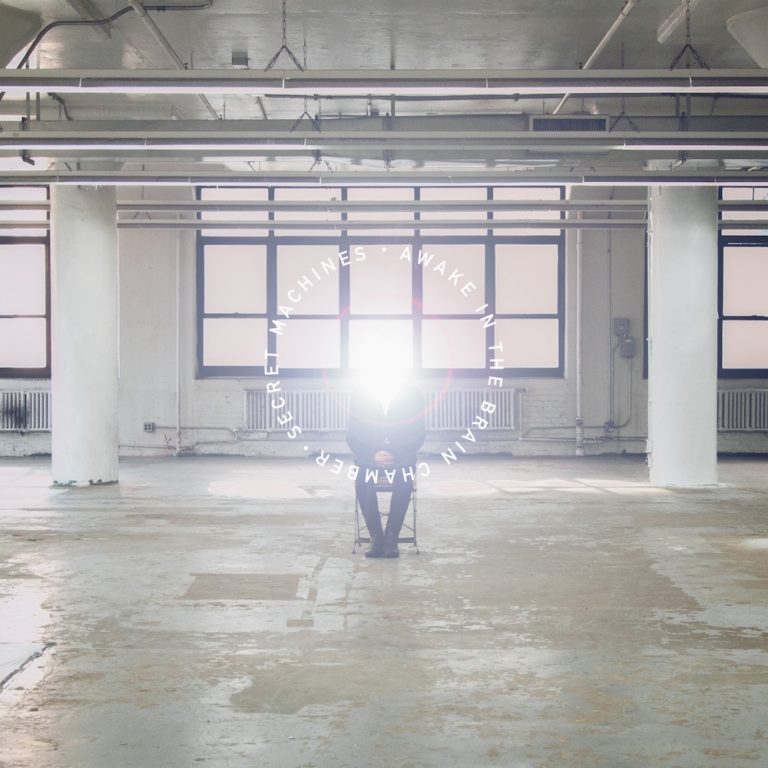Now here’s something nobody saw coming in 2020: a new album by New York indie scene alumni Secret Machines – their first in 12 years. But really, you’d be forgiven if you thought it’d been a little longer, so let’s do a quick recap…
Secret Machines formed in Dallas, Texas around the dawn of the new millennium. Spearheaded by brothers Brandon and Benjamin Curtis, the group emigrated to New York, where they crossed paths and played shows with local indie icons such as Interpol and The Strokes. Their debut album Now Here is Nowhere garnered widespread praise for its tight rhythm section, psychedelic guitar jams and strong songwriting, and the Machines managed to score a variety of opening slots for some of the biggest bands of that era. The follow up album, Ten Silver Drops, wasn’t too bad either, but when guitarist Benjamin left to concentrate on his side-project School of Seven Bells, things hit a road block. A self-titled third album was released in 2008, but without Benjamin’s signature guitar style and within the crushing mass of third-wave indie rock decadence, it’s all but forgotten.
Since then, Secret Machines had been dormant, and when Benjamin Curtis passed away in 2013, it looked like a return was unlikely. This was a shame – even if the band didn’t live up to the success of their contemporaries, their influence on the New York scene has been well established since. At their best, they managed to resemble a more progressive iteration of The Flaming Lips, and now effectively seem like a precursor of Tame Impala’s retro-psychedelic sound. So here we are today with the band’s fourth album Awake in the Brain Chamber, which has been in the works for nine years and features a number of collaborators – among them the departed Benjamin Curtis.
Comeback albums are a funny thing. If the album succeeds, they’re championed as the birth of a new cycle. If they fail, they’re the graciously spoken of as a coda; hey – even if it sucks, at least it’s one more chapter in a larger story! By now, the discourse has accepted that there’s no such thing as the degradation of a past legacy due to a terrible epilogue – and really, Awake in the Brain Chamber is good. It’s what you expect it to be: a spacey rock album that feels like a mash-up of Pink Floyd, Led Zeppelin, Amon Düül II, with just enough progressive influences to stand out a little.
Given that the rhythm section of Brandon Curtis and Josh Garza has remained intact, the thick drumming sound and noisy bass lines still stand out. There’s a few tracks on here that definitely would get any indie enthusiast to tap their boots – “Dreaming Is Alright” is a clear favourite for lead single; the modestly euphoric “Everything Starts” could fit on a Smashing Pumpkins record and “Everything’s Under”’s driving beat and crystalline guitar sound are extremely fitting for the current mixture of odd quarantine and heat wave. There’s a sense of stability to Awake in the Brain Chamber that gives it the uplifting qualities of a mood enhancer.
But there’s also a glaring issue with the record, which is that it never feels like a product of a decade-worth of work. At roughly half an hour, it’s incredibly short for a band that had two nine-minute long songs open and close their debut album. The thematic approach of tightly woven sonic concepts that seemed to steer and direct the band’s previous albums is missing here, which makes it feel more like a collection of songs, often following the same stylistic rules the band had well established 15 years ago.
Confronted with a creation history that spanned a decade, it’s surprising there’s so little innovation here, no detour from the already-familiar genre bending. This leads to songs like “A New Disaster” and closer “So Far Down” having the air of filler material; tracks whose development can be easily predicted a few seconds in and never rise above the mediocre. Like the Storm Thorgerson-style artwork, some of the material drops into the realm of the well-trodden cliché and feels like the antithesis of the fresh air qualities of the band’s early work.
Judging from these recordings, it’s unclear where Secret Machines are heading. Their strength lies in dynamic live shows, and those are postponed until further notice. Awake in the Brain Chamber possesses the clean-cut sound of a mainstream rock album that can sell large quantities, but it lacks the wild abandon and unique inspiration that leads to fervent adoration – the qualities that made their debut album into an underdog classic of the era. But the potential remains: “Angel Come” is the type of track that has dancers run up to the DJ booth to inquire what band is behind that great song they’ve never heard. But then the reason for its obscurity is that it’s hidden on a record too comfortable with itself for history to take note.

